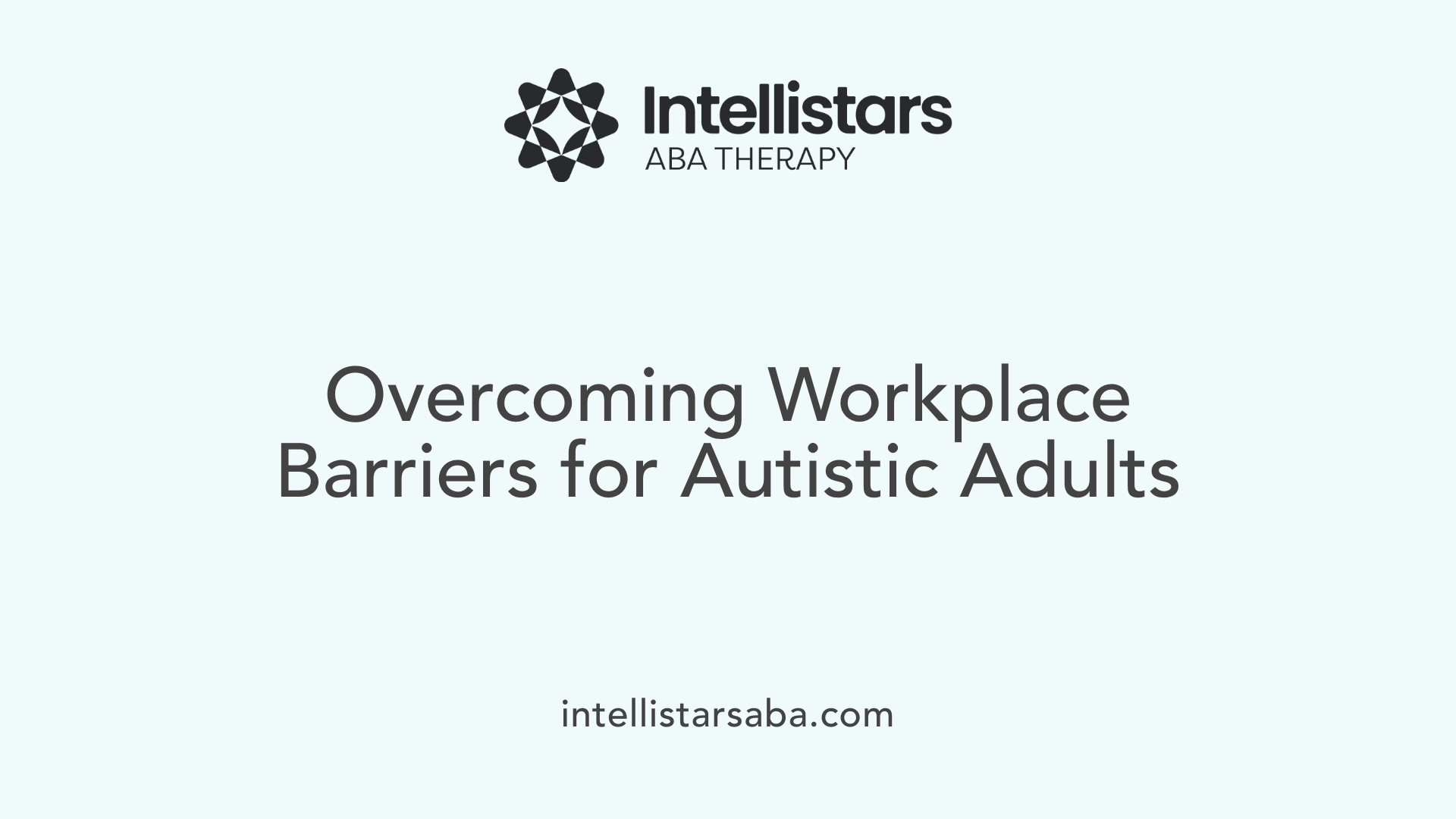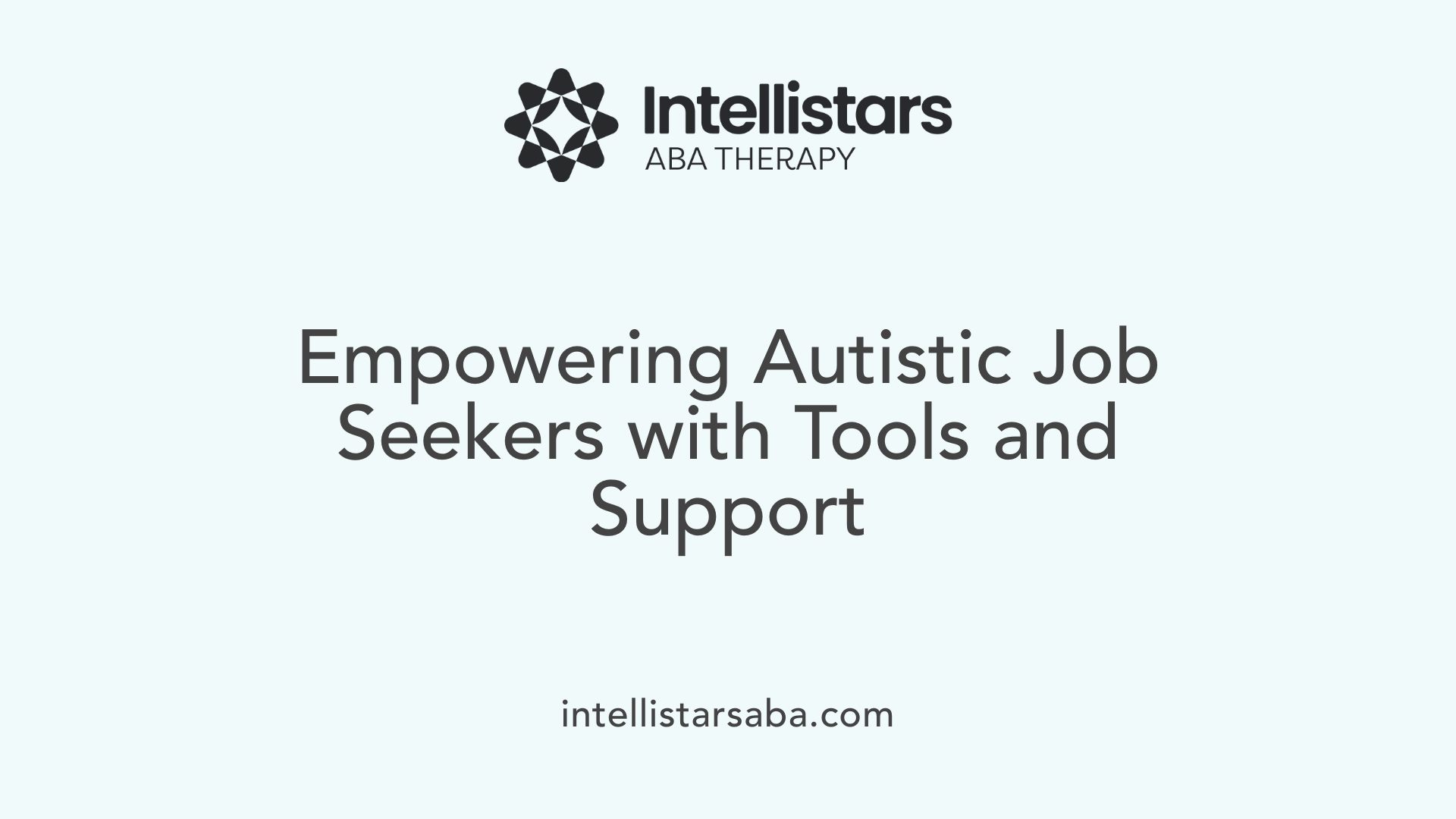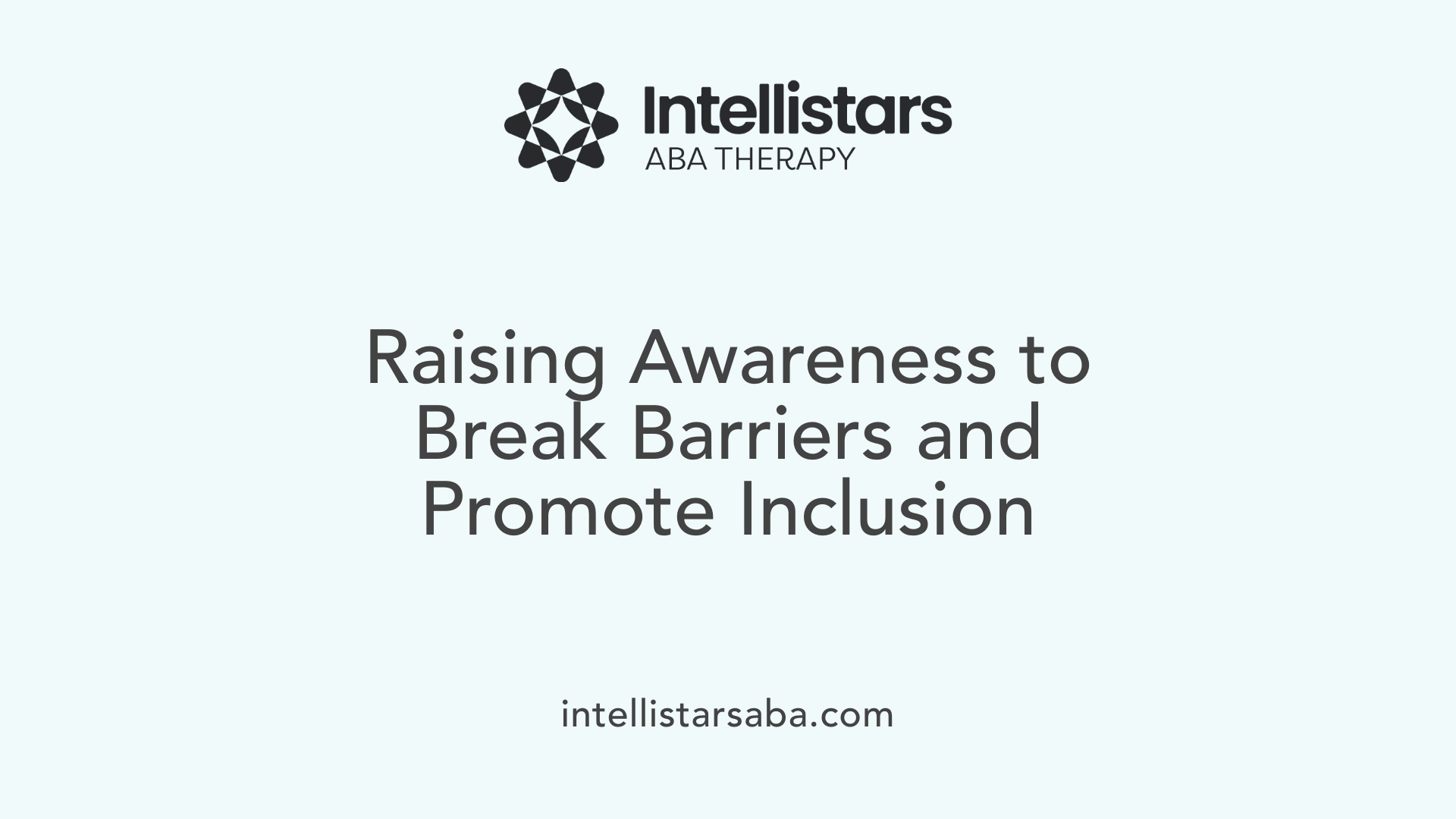Understanding the Employment Landscape for Autistic Individuals
Employment prospects for autistic individuals have historically been limited, with unemployment rates soaring between 76% and 90% across Europe and approximately 85% in the U.S. in 2023. Despite many possessing above-average IQs and no physical disabilities, social interaction challenges, sensory sensitivities, and workplace discrimination create substantial barriers. This article explores the current environment, challenges, supports, and success stories around autism and employment, emphasizing the collective efforts needed to foster inclusive workplaces.
The Current Employment Landscape for Autistic Adults
What are the employment prospects and opportunities for autistic individuals?
Overall, employment prospects for autistic adults remain challenging worldwide. The unemployment rate for autistic individuals is distressingly high, estimated to be between 76% and 90% in Europe, and approximately 85% in the United States as of 2023. These figures highlight the substantial barriers many face, despite a significant portion having normal or high-normal IQs and no major physical disabilities.
Many autistic adults encounter obstacles such as sensory sensitivities, difficulties with social interaction, and challenges in understanding social cues. Sensory hypersensitivities can make noisy or brightly lit environments overwhelming, which limits suitable job options. Additionally, difficulties in reading social cues and the fear of discrimination can lead to exclusion or misunderstandings in the workplace.
Interestingly, disclosing an autism diagnosis can influence employment chances. Studies indicate that autistic individuals who share their diagnosis with their employers are three times more likely to be hired. This is because disclosure often facilitates access to workplace accommodations, support systems, and understanding colleagues.
Progress is being made through targeted hiring initiatives across various countries. Companies such as SAP, Microsoft, and specialized organizations like Auticon have launched programs to employ autistic workers. These companies often incorporate job coaching, workplace adaptations, and inclusive policies, creating environments where autistic employees can thrive.
Many roles suited to autistic strengths are rooted in fields like information technology, arts, handicrafts, and mechanics. Visual thinkers and those with good mathematical, musical, or factual knowledge tend to excel in careers such as software development, engineering, accounting, and laboratory work. For individuals with nonverbal autism or poor verbal skills, jobs involving routine tasks like data entry, assembly line work, or janitorial jobs are often appropriate.
Despite these opportunities, the employment gap persists, and additional support is crucial. Support measures like job coaching, workplace modifications, and social skills training have been shown to improve employment outcomes. Moreover, fostering understanding and flexibility within workplace cultures can help reduce discrimination and promote inclusion.
In conclusion, while significant hurdles remain, ongoing efforts to improve awareness, accommodations, and targeted employment programs hope to open more doors. Creating likelihoods for autistic individuals to find meaningful, suitable work requires continued advocacy, policy changes, and personalized support systems tailored to their unique strengths and needs.
Challenges Faced by Autistic Employees

What challenges do autistic people face in the workplace?
Autistic individuals often encounter a range of obstacles when seeking and maintaining employment. A primary challenge comes from sensory sensitivities; many are highly reactive to loud noises, bright lights, or strong odors, which can make typical work environments overwhelming or uncomfortable.
These sensory issues can significantly reduce focus and productivity, leading to difficulties in completing tasks or staying engaged. Additionally, social communication difficulties pose another major hurdle. Autistic employees may find interpreting social cues, such as body language or tone of voice, complex, making it hard to interact smoothly with colleagues and supervisors.
Such challenges are compounded by difficulties with time management and adapting to unpredictable changes in routine. Many autistic individuals prefer structured, predictable environments and can become stressed or anxious when routines are disrupted.
Furthermore, workplace environments that lack understanding or fail to provide necessary accommodations can intensify these issues. Without sensory-friendly spaces, clear instructions, or supportive management, autistic employees are at increased risk of misunderstanding, exclusion, and discrimination.
Despite these obstacles, many autistic workers succeed when supported appropriately. Reasonable adjustments like flexible scheduling, quiet work areas, and clear communication can help. Increasing awareness and fostering an inclusive culture are essential to unlocking the talents of autistic employees and ensuring they have fair opportunities to thrive.
Workplace Support and Accommodations
What support measures and accommodations are available for autistic employees?
Supporting autistic employees involves implementing various adjustments tailored to their unique needs. These accommodations can include flexible work schedules that help manage sensory sensitivities or anxiety, and creating quiet, sensory-friendly workspaces to reduce overstimulation. Clear and straightforward communication practices are essential, such as providing written instructions and visual aids, to support those who may struggle with verbal exchanges.
Workplace modifications often extend to environmental changes like adjustable lighting, noise reduction measures, and assistive technologies that can help perform tasks more comfortably. Structured routines and predictable schedules can improve focus and reduce stress, while educational supports may help colleagues and supervisors better understand autism-related challenges.
Disclosing an autism diagnosis can be beneficial for accessing these supports, as it allows for tailored adjustments. However, this decision is personal; some may choose to disclose to facilitate accommodations, while others prefer to keep their diagnosis private due to concerns about stigma.
In many regions, employers are legally obligated by laws such as the Americans with Disabilities Act (ADA) to provide reasonable accommodations. These should be discussed through an interactive process, ensuring the support fits the individual’s needs without causing undue hardship for the organization.
Overall, personalized accommodations promote a more inclusive work environment, enhance productivity, and help retain talented autistic employees. Creating a supportive setting not only aligns with legal standards but also benefits organizational culture by embracing neurodiversity.
Career Pathways and Job Suitability

What are suitable jobs and career options for autistic individuals?
Choosing the right career path can revolutionize an autistic person’s work experience by aligning their strengths with suitable job environments. Many autistic adults thrive in fields that emphasize routine, structure, and attention to detail. These include careers in information technology, engineering, accounting, and laboratory sciences, where precision and pattern recognition are valued.
Visual thinkers—individuals who process information through images and spatial relationships—often excel in roles like computer programming, graphic design, photography, and automotive mechanics. These jobs demand visual skills and typically involve minimal verbal interaction, making them particularly suitable.
Jobs that offer predictable schedules and limited social demands are generally more accessible. For example, data entry, library shelving, medical coding, and remote freelance work allow autistic individuals to work effectively within structured settings.
Moreover, workplaces that provide reasonable accommodations—like sensory adjustments, flexible hours, or quiet spaces—can significantly increase employment success across various fields. Supporting environments that recognize and harness individual strengths can open doors to rewarding careers for autistic workers.
| Suitable Fields | Job Types | Description |
|---|---|---|
| Visual and Spatial Skills | Computer programming, graphic design, automotive mechanics | Rely on visual thinking, minimal verbal communication needed |
| Structured and Repetitive | Data entry, library shelving, factory work | Benefit from routine and minimal social interactions |
| Technical and Precision | Laboratory technician, medical coder | Require focus on detail and accuracy |
By exploring these options and requesting workplace accommodations, autistic individuals can find careers that suit their talents and provide fulfilling work experiences.
Strategies and Resources for Gaining Employment

What strategies and resources exist to help autistic people gain and maintain employment?
There are many approaches and tools designed to support autistic individuals in finding and keeping a job. Targeted job training programs, vocational rehabilitation services, and mentorship initiatives are some of the most effective ways to prepare and support autistic workers. These programs often focus on developing skills suited to individual strengths, whether that involves technical trades, creative fields, or administrative roles.
Support networks and community resources also play a crucial role. They provide ongoing assistance, advice, and advocacy, helping autistic employees navigate workplace challenges. For example, organizations like Autism Speaks, Autism Society, and nonprofit programs such as Teaching the Autism Community Trades (TACT) connect autistic job seekers with relevant opportunities. TACT, in particular, links individuals to trade jobs in fields like electrical work, plumbing, and carpentry, which often align with the preferences and strengths of autistic workers.
Legal and policy frameworks are in place to promote inclusive employment. The Americans with Disabilities Act (ADA) and federal initiatives like the Ticket to Work program protect rights and create pathways for reasonable accommodations. The Workforce Innovation & Opportunity Act (WIOA) facilitates access to training and employment services for people with disabilities, including autism.
Online tools and websites have emerged as valuable resources. They offer job listings, training modules, and guidance on disclosure and requesting workplace adjustments. Many of these platforms also promote employer awareness and autism-friendly practices.
Transition programs target youth with autism, providing critical support before they enter the workforce. These initiatives prepare high school students for their career paths and help connect them with employment opportunities after graduation.
Despite these available supports, challenges persist. Awareness, acceptance, and tailored accommodations are still evolving in many workplaces. Continued development of inclusive policies and rising employer awareness are essential to improve employment outcomes for autistic individuals.
Below is a summary table of available resources and strategies:
| Resource/Strategy | Description | Target Group / Field |
|---|---|---|
| Job Training & Mentoring | Specialized programs to develop skills | Youth, adults in trades, technical fields |
| Vocational Rehabilitation | Supports to find and sustain employment | All employed individuals with autism |
| Legal Supports (ADA, WIOA) | Policies to promote inclusion and accommodations | Employers, employees |
| Online Job Platforms | Websites and tools for job matching | Job seekers, employers |
| Transition Programs | Preparing youth for workforce entry | High school students |
| Employer Awareness Trainings | Educating employers about autism | HR professionals, managers |
| Advocacy & Support Organizations | Providing guidance and resources | Autistic individuals and families |
In conclusion, a combination of legal protections, specialized training, community and online resources, and employer engagement creates a robust framework to enhance employment prospects for autistic individuals.
Success Stories and Programs Promoting Employment
Are there success stories or programs that promote employment for autistic individuals?
Absolutely. Many autistic individuals have achieved notable success in their careers, thanks to targeted programs, supportive workplace environments, and advocacy efforts. Prominent figures like Temple Grandin, a renowned animal scientist and autism advocate, demonstrate that autism can be an asset in scientific and technical fields. Other well-known individuals such as actress Daryl Hannah, comedian Dan Aykroyd, and aerospace engineer Tim Ellis showcase diverse pathways of achievement, emphasizing that with the right support, autistic adults can thrive.
Supported employment initiatives are also making a significant difference. For example, programs at Virginia Commonwealth University and employment services by organizations like Auticon have helped autistic adults find suitable jobs. These programs often incorporate job coaching, workplace accommodations—such as sensory adjustments—and tailored training to address specific challenges.
Many companies are actively promoting inclusive hiring practices. Major corporations like SAP and Microsoft have launched autism employment programs, recognizing the unique strengths of neurodiverse employees and creating environments that support their success. These initiatives often include flexible working hours, quiet spaces, and training for staff to foster understanding.
Legal protections have played a vital role, too. Laws such as the Americans with Disabilities Act (ADA) require employers to provide reasonable accommodations, reducing social and environmental barriers. Advocacy organizations, including the Autism Society, Autism Speaks, and The Arc, work tirelessly to raise awareness, influence policy, and promote employer engagement.
Collectively, these efforts showcase that with awareness, appropriate supports, and workplace adjustments, autistic individuals can excel in many fields—contributing their talents and perspectives to society. The ongoing development of programs and legal safeguards continues to bolster employment opportunities, paving the way for a more inclusive workforce.
For further insights into inspiring stories and innovative employment initiatives, searching “autism employment success stories” can provide additional inspiration and practical examples.
Role of Organizations, Employers, and Policymakers
 Autistic individuals face numerous barriers in gaining meaningful employment, and the roles of organizations, employers, and policymakers are crucial in changing this landscape. These stakeholders can implement and promote inclusive policies and practices that support neurodiversity in the workplace.
Autistic individuals face numerous barriers in gaining meaningful employment, and the roles of organizations, employers, and policymakers are crucial in changing this landscape. These stakeholders can implement and promote inclusive policies and practices that support neurodiversity in the workplace.
Organizations and employers are encouraged to adopt flexible work arrangements, sensory-friendly environments, and clear communication styles tailored to autistic employees' needs. Training programs to increase awareness and understanding about autism help foster acceptance, reduce stigma, and promote a supportive workplace culture.
Legislation such as the Autism Act 2009 and the UK’s Equality Act 2010 provide a legal framework for promoting nondiscrimination and requiring reasonable workplace accommodations. Incentives like tax breaks, grants, and supported employment programs motivate businesses to hire and retain autistic staff.
Policymakers play a key role by guiding systemic change through funding and regulation. They support transition services for youth, expand vocational training, and promote research on effective employment strategies. Legislation also fosters community engagement, encouraging partnerships with disability organizations, advocacy groups, and industry leaders.
Programs like the U.S. Department of Labor’s Autism Resources and the Ticket to Work initiative exemplify efforts to connect autistic job seekers with supportive employment opportunities. Employers participating in autism-focused programs and community engagement initiatives help normalize neurodiversity and create pathway opportunities.
The overall goal is to cultivate environments that understand, respect, and accommodate autistic individuals’ strengths and challenges. This includes promoting disclosure in supportive settings, offering job coaching, and ensuring policies uphold dignity and inclusion.
| Stakeholder | Roles & Responsibilities | Examples & Initiatives |
|---|---|---|
| Organizations | Promote inclusive practices, conduct awareness training, support reasonable accommodations | Autism-focused employer programs, workplace diversity initiatives |
| Employers | Implement flexible policies, provide sensory adjustments, foster acceptance | Autism @ Work Employer Roundtable, corporate diversity programs |
| Policymakers | Enact supportive legislation, fund transition and vocational programs, encourage community partnerships | Autism Act, Workforce Innovation & Opportunity Act (WIOA), community engagement campaigns |
Through a collaborative approach, these efforts strive to reduce barriers and enhance employment prospects for autistic individuals, ensuring they can contribute effectively and thrive professionally.
The Impact of Education and Awareness

How does education and awareness about autism impact employment and workplace inclusion?
Raising awareness and understanding of autism play a vital role in transforming workplace environments. When employers, colleagues, and HR professionals are educated about autism, misconceptions are challenged, and acceptance increases. This shift often results in reduced stigma, making it easier for autistic individuals to seek and secure employment.
Programs such as Autism Speaks' Workplace Inclusion Now (WIN) offer targeted training sessions that equip organizations with the knowledge to adopt inclusive hiring practices. These initiatives encourage companies to understand the diverse strengths and needs of autistic employees, fostering a culture of acceptance.
Greater awareness also leads to systemic changes, shifting societal views from viewing autism through stereotypes to recognizing it as a form of neurodiversity that enriches workplaces. Such change not only supports mental well-being but also unlocks the potential for innovation and fresh perspectives.
Organizations benefit from embracing neurodiversity by enhancing problem-solving and creativity. Involving autistic voices in developing workplace policies ensures accommodations are meaningful and effective. As a result, workplaces become more welcoming, equitable, and productive.
In summary, education and awareness are fundamental in breaking down barriers faced by autistic individuals. They help create inclusive, supportive environments where everyone has access to fulfilling employment and can contribute to their fullest potential.
| Aspect | Impact | Example or Resource |
|---|---|---|
| Perception | Reduces stereotypes & stigma | Awareness campaigns, workplace training |
| Policies | Promotes inclusive hiring | Autism Speaks' WIN, employer guidelines |
| Organizational Culture | Fosters acceptance & innovation | Neurodiversity programs, employee resource groups |
| Support Resources | Provides accommodations & training | Job coaches, employer support guides |
Fostering an Inclusive Future for Autism in the Workforce
While challenges persist, the evolving landscape of employment for autistic individuals demonstrates promising strides through targeted initiatives, supportive policies, and awareness campaigns. Recognizing strengths, implementing accommodations, and creating inclusive cultures allow autistic workers not only to contribute but to thrive. Continued advocacy, education, and innovation remain essential to bridge disparities and unlock the full potential of the autism community in the workforce. Building a future rooted in understanding and support will ensure that employment becomes a genuine avenue for inclusion and empowerment for all.
References
- Employment of autistic people
- Choosing the Right Job for People with Autism or Asperger's ...
- Autism
- People with autism often have difficulty finding employment ...
- Autism at Work: Overcoming Challenges
- Autism and Employment
- Employment
- Employment Resources for Autism - Websites and Program
- Choosing the Right Job for People with Autism or Asperger's ...
- Exploring Best Careers for Autistic People: A Complete Guide






